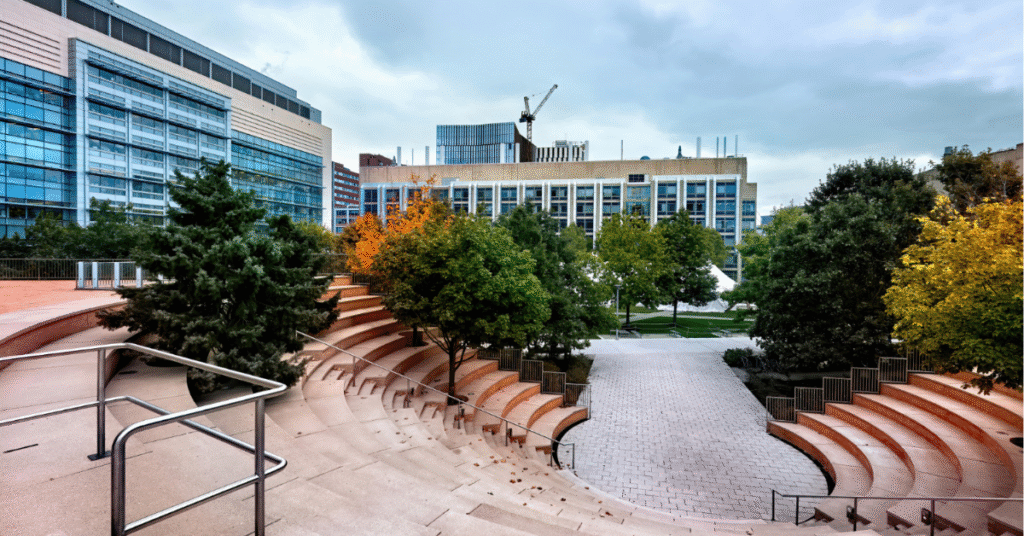Choosing to study medicine in the Caribbean is a life-changing decision.
Every year, thousands of students from the United States, Canada, the United Kingdom, and other countries enroll in Caribbean medical schools such as St. George’s University (Grenada), Ross University School of Medicine (Barbados), American University of the Caribbean (St. Maarten), Saba University School of Medicine (Saba Island), and the University of Medicine and Health Sciences (St. Kitts).
While academics remain the central focus, one of the most crucial aspects of student life is finding the right accommodation. Medical school requires long hours of study, clinical training, and personal discipline.
The living environment you choose can directly impact your focus, stress levels, social connections, and even academic performance.
This guide provides a comprehensive look at the best student accommodation Caribbean medical school options, complete with pros and cons, cost breakdowns, safety tips, and practical advice from alumni. By the end, you’ll know exactly which type of housing best suits your needs and lifestyle.
Why Accommodation Matters for Medical Students
Medical school in the Caribbean is academically intense. Students often spend 10–12 hours a day in classes, labs, or self-study. Having the right housing arrangement ensures:
- Convenience: Close to campus = more time for studying and rest.
- Comfort: Good internet, air conditioning, and reliable utilities reduce stress.
- Community: Living with peers helps with collaboration and emotional support.
- Safety: Secure housing in safe neighborhoods prevents distractions.
- Budget control: Accommodation costs are often the second-largest expense after tuition.
Main Types of Accommodation
1. On-Campus Housing
Most Caribbean medical schools provide on-campus housing, particularly for first-year students. These dormitories or residence halls are located within walking distance of lecture halls and labs.
Advantages:
- Ultimate convenience—no commuting required.
- Strong campus security and 24/7 maintenance.
- Great for building study groups and friendships.
- Utilities like internet and water often included.
Disadvantages:
- Limited privacy compared to apartments.
- Dorm-style living means adapting to rules and schedules.
- Availability is competitive; apply early.
Best for: First-year or international students who want security, convenience, and easy community integration.
2. Off-Campus Apartments
Off-campus apartments are highly popular among upper-year students. Options range from studios to multi-bedroom flats, depending on budget.
Advantages:
- Greater independence and privacy.
- Freedom to choose neighborhood and roommates.
- Typically more spacious (private kitchen, living area).
Disadvantages:
- Extra responsibilities (rent, utilities, cooking).
- May require transportation if located farther away.
- Costs vary by proximity to campus.
Best for: Students seeking independence and willing to handle adult responsibilities.
3. Private Rentals and Shared Houses
Some students rent private homes or rooms within shared houses near campus.
Advantages:
- Cost-effective when split among roommates.
- Opportunity to live in local communities.
- Flexible arrangements depending on property.
Disadvantages:
- Quality and safety vary by landlord.
- Lease terms may be restrictive.
- Requires independence and management.
Best for: Budget-conscious students who want more space and don’t mind sharing.
4. University-Affiliated Housing
Several medical schools partner with local landlords to provide vetted housing options.
Advantages:
- Pre-approved for safety and student-friendliness.
- Furnished units with reliable internet.
- Located close to campus.
Disadvantages:
- Higher demand, limited supply.
- Still may require commuting.
Best for: Students wanting independence but still preferring school-backed assurance.
5. Homestays
Less common but available—students live with local families in homestay arrangements.
Advantages:
- Deep cultural immersion and language exposure.
- Supportive family-like environment.
- Sometimes includes meals, reducing costs.
Disadvantages:
- Less independence.
- Adapting to family rules and routines.
- Limited availability near medical schools.
Best for: Students who value cultural experience and structured support.
Cost of Living and Housing by Island
The Caribbean is diverse, and costs vary depending on island size and popularity. Below is an overview:
Grenada (St. George’s University)
- On-campus: $700–$1,200/month
- Off-campus: $900–$1,500
- Living expenses: $500–$800/month
Barbados (Ross University)
- Housing: $800–$1,400
- Living costs: $600–$900
St. Maarten (AUC)
- Housing: $800–$1,200
- Apartments: $900–$1,600
- Living costs: $600–$1,000
Saba Island (Saba University)
- Rentals: $500–$900
- Living costs: $400–$700
St. Kitts (UMHS)
- Rentals: $600–$1,000
- Living costs: $500–$800
Tip: Rent is higher near campus and decreases as you move further away, but transportation costs may offset savings.
Scholarships and Financial Aid for Housing
Some Caribbean medical schools recognize that housing adds significant financial pressure. Examples:
- St. George’s University: Scholarships sometimes cover housing stipends.
- Ross University: Financial aid packages factor in rent and living expenses.
- AUC: Offers support with housing deposits for students on financial aid.
Always consult the financial aid office to confirm whether your living expenses can be partially covered.
Pros & Cons of Each Option (Comparison Table)
| Option | Pros | Cons | Best For |
|---|---|---|---|
| On-Campus Dorms | Safe, convenient, social | Expensive, less privacy | First-year students |
| Off-Campus Apartments | Independent, spacious | Bills, commute | Independent learners |
| Private Rentals | Affordable, flexible | Variable quality | Budget-conscious |
| University-Affiliated | Safe, vetted | Limited supply | Students wanting security |
| Homestays | Cultural immersion | Less independence | Students seeking local life |
Safety and Security Considerations
- Neighborhood choice: Always check reviews from alumni about safe zones.
- Hurricane preparedness: Housing should have storm shutters or backup generators.
- School-approved housing: Prefer accommodations vetted by the university.
- Personal precautions: Avoid poorly lit areas, secure valuables, and maintain good communication with peers.
Lifestyle and Cultural Factors
- Small islands (Saba, St. Kitts): Quiet, tight-knit, ideal for focus.
- Larger islands (Grenada, Barbados, St. Maarten): More restaurants, entertainment, and social opportunities.
- Outdoor activities: Proximity to beaches, hiking, or gyms can improve work-life balance.
Tips from Alumni
- Apply early for dorms—spaces fill within weeks.
- Do virtual or in-person tours before paying deposits.
- Check internet reliability; lectures and exams often require strong connectivity.
- Budget for hidden costs like air conditioning or transportation.
- Living near classmates helps with forming study groups and sharing resources.
Long-Term Housing Strategy
- Year 1: On-campus or affiliated housing (smoother transition).
- Year 2–3: Move off-campus or shared housing for independence.
- Clinical Rotations: Flexible short-term leases near hospitals.
Best Overall Options
- Most Convenient: On-campus housing at SGU or AUC.
- Best for Independence: Off-campus apartments in Barbados or St. Maarten.
- Best Budget Choice: Shared rentals in Saba or St. Kitts.
- Best for Safety: University-affiliated housing vetted by schools.
- Best for Cultural Experience: Homestays with trusted local families.
Conclusion:
Selecting the best student accommodation Caribbean medical school option is not just about finding a roof over your head—it’s about creating an environment that supports your academic journey, personal growth, and cultural immersion.
First-year students may benefit most from the convenience and security of on-campus dorms, while upper-year students often prefer off-campus apartments for greater independence. Shared rentals provide affordability, university-affiliated housing ensures reliability, and homestays offer cultural enrichment.
Ultimately, the best choice depends on your priorities: convenience, independence, budget, safety, or cultural immersion. By carefully weighing costs, lifestyle needs, and long-term goals, you can find accommodation that makes your Caribbean medical school experience both successful and rewarding.


